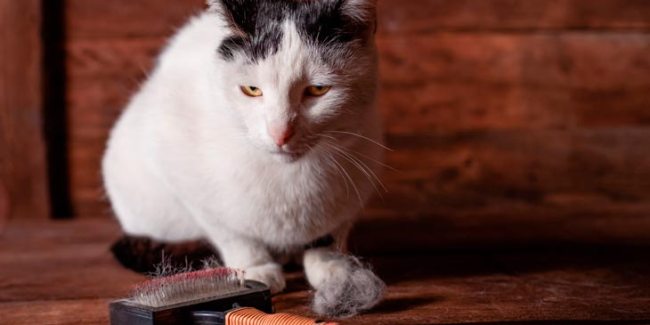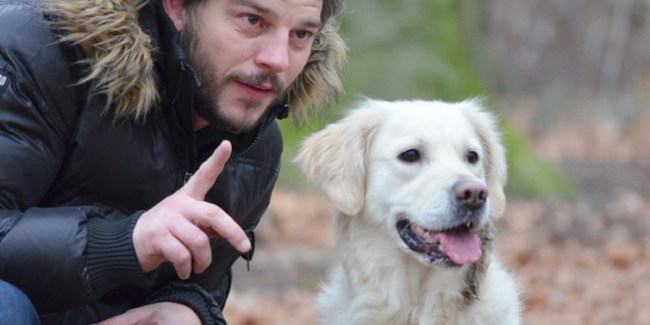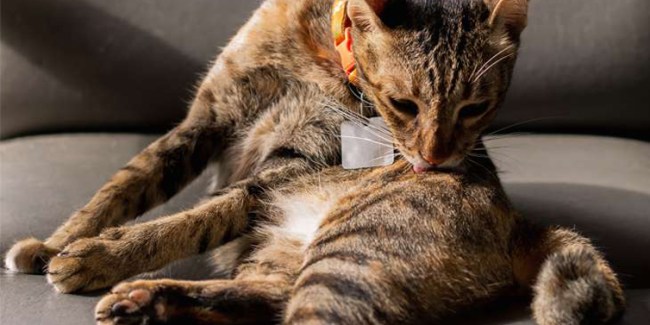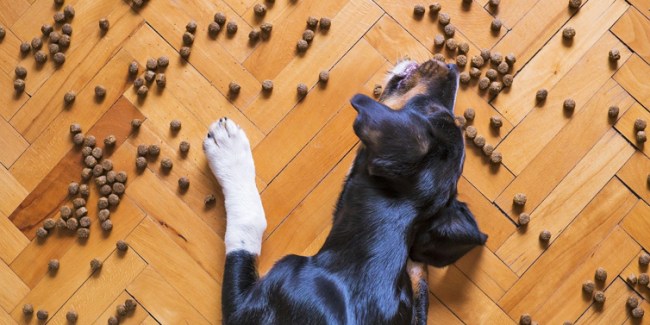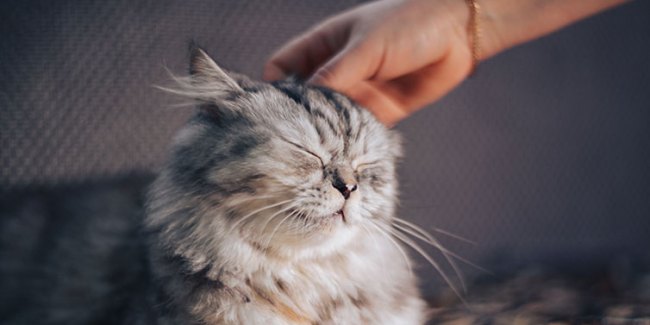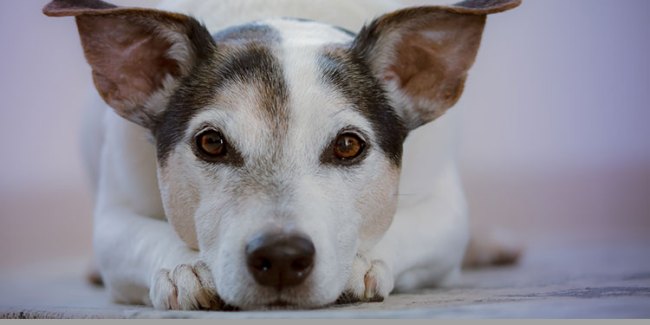When your doggie is feeling down
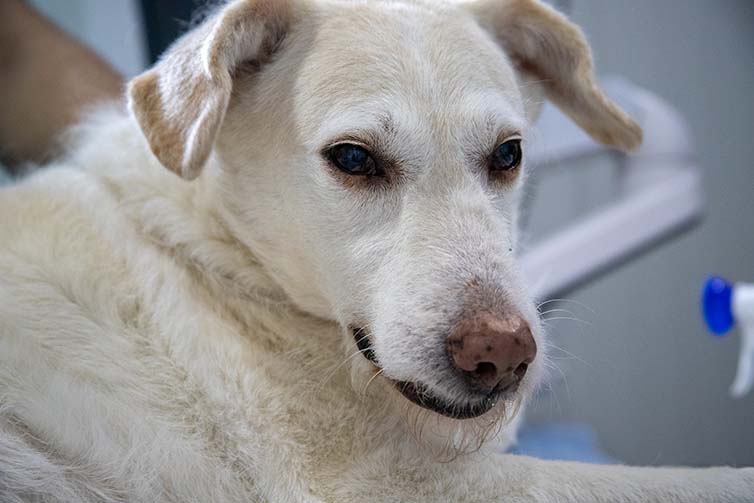
Most doggy parents are familiar with the awful feeling you get when your canine companion is ‘under the weather’. We tend to recognise the signs almost straight away and then we have to decide what to do:
Do I take her to the vet now, before it gets worse?
Am I over-reacting?
Shall I leave it until tomorrow, with the risk of her getting really ill during the night?
Will the vet think I’m crazy if I take her now?
We’ve all been there, right? There’s also the harsh reality of finances that may come into our decision. Unbudgeted vet visit can be a concern, especially if you haven’t taken out some form of pet medical insurance. You absolutely don’t want your pooch to suffer but finances are a serious consideration for many people who might put off a visit to the vet because they can’t afford it. Also, doggies have a nasty habit of getting sick on a Sunday when most vets charge a surcharge (understandably, because it’s their weekend too), so the temptation is to ‘Leave it ‘til tomorrow; I’m sure he’ll be O.K. until then.’
We can totally relate to all of the above concerns, so we thought that we would do some research and share with you our findings. However, our first statement must be the following:
If in doubt, take your furry friend to the vet, sooner rather than later.
What sort of things do I need to watch out for?
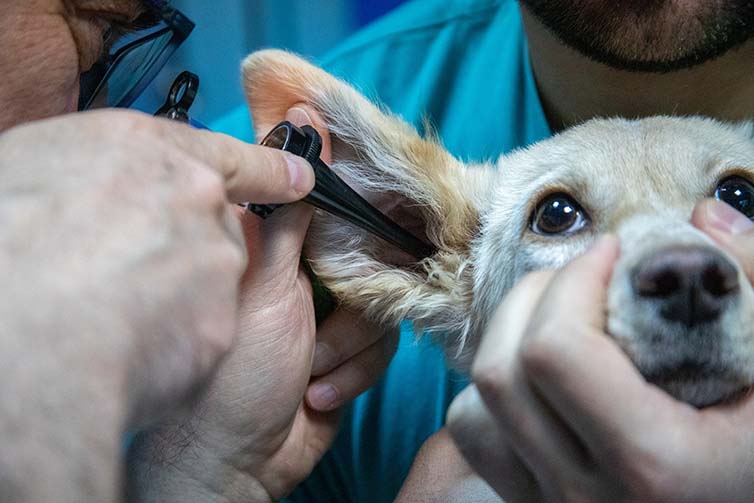
Most animals will tend to mask their symptoms. In the wild a sick animal is very vulnerable to attack from predators, so your doggie may tend to take the road of ‘carrying on regardless’, even though he/she may be feeling sick inside. Your domestic pets have, of course, inherited this strategy and may appear to be less ill than they really are. And … they cannot tell you. A small child has the same problem, but at least most can say “Tummy sore, Mommy”; your pet, of course, cannot. Small children, and men (sorry, guys, but it’s true), know very well that they will get lots of sympathy when they’re feeling unwell, which is quite a strong motive for ‘putting on’ a sick act. Dogs don’t.
Here is a personal experience from one of our readers: Their little Yorkie, Matilda, once had a horribly infected eye which they didn’t notice at first, for two reasons: she didn’t seem to be sick in any way and she was eating and behaving normally, also, they had a new Yorkie puppy (a little thug) in the house who was taking up most of their attention. When they noticed the state of her eye they rushed her to the vet, feeling terribly ashamed of themselves. She lost the eye. Can you imagine the guilt? They’ll never forgive themselves.
Small, subtle changes in your doggie’s behaviour may be an indication of quite a serious illness, so here’s a list of things to look out for:
- Hiding (almost as if they’re ashamed)
- Vomiting and/or diarrhoea (if excessive *)
- Bloated tummy *
- Less activity
- Loss of appetite
- Blood in stool or urine
- Increased fur shedding
- Bald patches in skin
- Inability to urinate or defaecate *
- New lumps
- Smell from mouth, ears or skin
- Limping
- Seizures *
- Discharge from eyes or nose
- Increased crying or whining
- Difficulty getting onto furniture or climbing stairs
- Inability to stand up *
The * indicates a possible emergency and may require a visit to the vet, particularly if these symptoms continue for more than a day or so. The other signs, if they continue for more than a few days, may also require that you consult your vet.
How do I care for a sick pet at home?
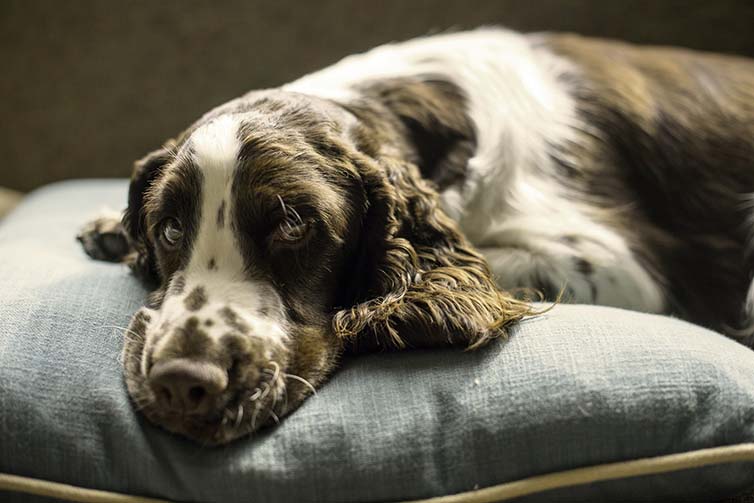
1.Keep your sick dog quiet.
Try to keep a sick pet (Let’s call him Buster.) in a quiet environment, ensuring that children or other pets don’t bother him. If possible, put Buster in a separate room.
2. Listen carefully to instructions from your vet
Pay attention when your vet tells you about any medication or special treatment for your pet. If Buster is very sick, you may feel emotional, so ensure that you write down all details and that you understand them. Ask your vet to show you how to administer any medication. There may be special storage instructions for some meds e.g. refrigeration, and some may require you to finish them even when Buster is feeling better e.g. antibiotics.
3. Food
Your vet may prescribe a special diet for Buster. Again, make sure that you understand how to prepare this and also how much and how often to feed him. Do not be tempted to cheer him up with treats. These may affect his diet and meds and even make him sicker. Ensure that your children are aware of this. Eating or drinking too fast can upset his stomach, so you may need to feed him in small quantities, more often. Always feed a sick dog separately from other pets – they may find his chicken and rice more tempting than their own food, or Buster may try to steal theirs.
4. Special treatment
Some meds may make Buster drowsy or disoriented. You may need to help him to get outside, or in the case of a small dog, you might consider providing him/her with a litter tray. Some meds can make your pet want to relieve him/herself more often, so you may need to get up in the night to help him. Your vet will advise you of any possible side effects of his medication.
5. Keep an eye on symptoms
Contact your vet immediately if you notice any worsening symptoms. They may be a result of the meds or they may indicate that Buster’s illness is getting worse.
6. Follow-up vet visits
Your vet will probably want to check on Buster to monitor his progress. This visit may be free or at a reduced rate than the initial visit. It is very important that you take him, even if he seems to be better, as there may be subtle symptoms which your vet may pick up. Do not attempt, for example, to act as veterinary nurse and extract any stitches with your household scissors. This could be disastrous. (Does it sound as if I’ve ‘been there’? I have.)
7. Exercise
Obviously, a sick dog needs to rest. Even the most boisterous pup, like Buster, will need quiet time to recuperate. Your vet will advise you about whether and when to allow him to go back to his normal exercise routine. But while he is sick, particularly if he is recuperating from surgery, you may need to confine him to a small area, or even a crate, especially if you are going out. Bear in mind that Buster may have a weakened immune system after a serious illness or surgery, and getting too much exercise too soon may cause a set-back to his recovery.
How do I care for Buster after surgery?
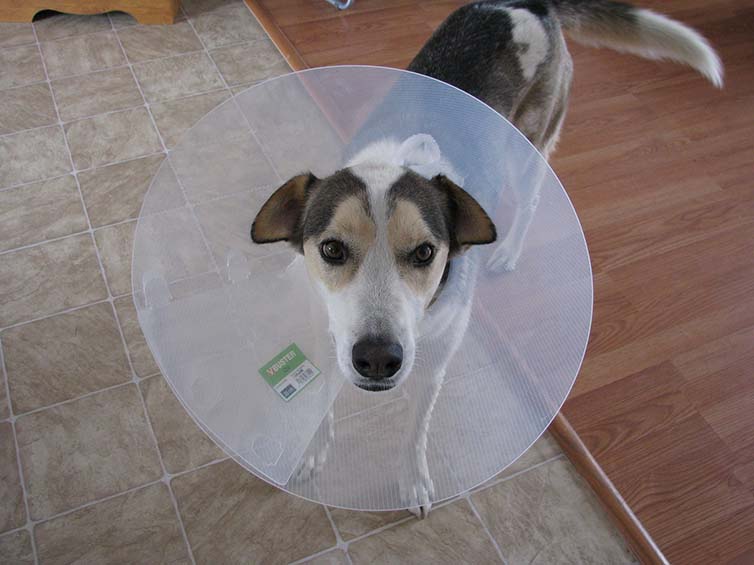
After surgery it is important to make sure that Buster has a quiet, comfortable place to rest, away from small children and any other pets in your home. If he is an ‘outside’ pooch he should be kept indoors for a couple of days so that you can keep a close eye on him. This can be a stressful time for Buster and for you.
If he has had an anaesthetic, it may take some time for him to recover from the effects of this. The effects of the anaesthetic may take some time to wear off and he may be shaky on his feet for some hours. He may even need help with walking and getting outside. The vet may advise you to limit his exercise for a few days. Ensure that you follow your vet’s advice as exerting himself too soon may cause injury and a set-back to his recovery.
Follow your vet’s instructions with regard to feeding. Buster may be feeling a bit nauseous from the anaesthetic and may have no appetite. Try giving him a light meal with perhaps some chicken and rice which may stimulate his appetite, but if he declines, take it away. If he doesn’t eat after a day or two, contact your vet.
Keep a close eye on him, especially in the first few days after surgery. Watch for any new or unusual symptoms and contact your vet if you’re worried. For example, new redness around a wound may indicate an infection.
If he has a wound, you will be advised by your vet how to deal with it. You will need to keep it clean and you’ll be told how often to dress it and what to use. If you have problems doing this, remember that your vet will be glad to help you. Poor old Buster may have to wear a ‘Elizabethan collar’ (sometimes known as ‘the collar of shame’, simply because most dogs appear to be terribly embarrassed when wearing this) which he will, of course, make every attempt to remove. It is, of course, intended to prevent him from damaging his healing wound, so it is most important that he keeps it on for the prescribed number of days. Yes, you will feel sorry for him but IT IS FOR HIS OWN GOOD!
And finally …
Remember that some illnesses in dogs can be prevented:
- Put that bag of garbage somewhere where he/she cannot reach it.
- Ensure that your house and garden are as safe as possible and that your doggie cannot escape and run into the road.
- Make sure all vaccinations and inoculations are up-to-date.
- You can prevent tick and flea related illnesses by using Bravecto® Spot-On, which gives up to 4 months of protection, or Bravecto® Chew which provides 12 weeks of protection against these little nasties which can cause disease.
Our canine companions do not feel sorry for themselves as we do, when they are sick. Once the pain has gone or the nausea has stopped, they have the amazing capacity to ‘bounce back’, unlike humans who take a while to get back on their feet after an illness. It’s always wonderful to see this and to realise how truly amazing our canine companions really are.
‘Bye for now.
ZA-NON-211000036

Subscribe to our Newsletter
Get to know your furry friend better! Sign up for all things dog- or cat-related.
The Hairy Facts about the dreaded hairball
12 April 2021
Help! My dog’s barking mad! Volume 2
12 April 2021
Your Itchy, Scratchy Cat – All About Cat Skin Problems
12 April 2021
The Dog’s Diet: A Bone of contention?
01 April 2021
Mango Fly Worms: How to Spot and Eliminate them
Posted on November 28,2019
Managing Mange And Mites In Your Dog
Posted on June 11,2018
Why Do Cats Purr and How? Learn What Your Cat Is Saying
Posted on October 14,2020
How to Get Rid of Ear Mites in Dogs
Posted on November 06,2019


